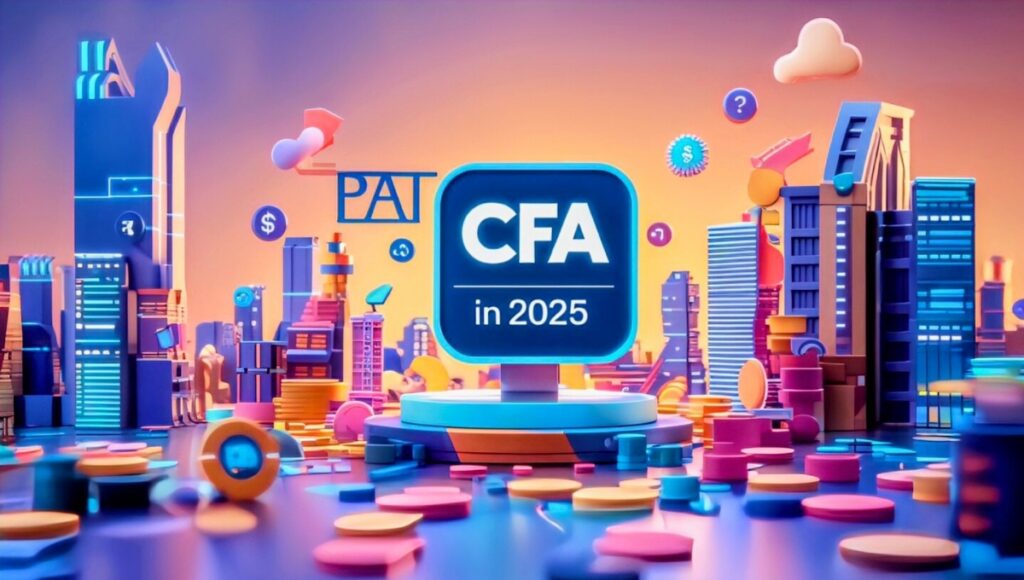The financial industry is evolving at an unprecedented pace and the role of a chartered financial analyst in 2025 (CFA) is more critical than ever. As we step into 2025, the CFA designation continues to be a gold standard in the finance world, offering professionals a competitive edge in a rapidly changing landscape.
Whether you’re a finance enthusiast, a seasoned professional or someone considering a career in finance, this blog will provide you with a detailed overview of what it means to be a chartered financial analyst in 2025, the skills required, the future outlook and why this certification remains a top choice for finance professionals.
What is a Chartered Financial Analyst in 2025 (CFA)?
The Chartered Financial Analyst (CFA) designation is a globally recognized certification offered by the CFA Institute. It is designed for investment professionals who want to deepen their knowledge in areas such as portfolio management, financial analysis, economics and ethical practices. The CFA program is rigorous, requiring candidates to pass three levels of exams, gain relevant work experience and adhere to a strict code of ethics.
In 2025, the CFA charter continues to be a hallmark of excellence, signaling to employers and clients that the holder possesses advanced skills and a commitment to ethical standards in the finance industry.
Why Pursue a CFA Charter in 2025?
1. Global Recognition and Credibility
The CFA charter is recognized in over 165 countries, making it one of the most respected credentials in the finance industry. In 2025, as businesses become increasingly global, having a CFA designation ensures that your skills and expertise are valued worldwide.
2. High Demand for CFA Professionals
The demand for CFA charter holders is expected to grow significantly in 2025. With the rise of fintech, sustainable investing and data-driven decision-making, companies are seeking professionals who can navigate complex financial landscapes. CFA charter holders are uniquely positioned to fill these roles.
3. Competitive Salary and Career Growth
CFA charter holders often command higher salaries compared to their peers. In 2025, the average salary for CFA professionals is projected to increase, especially in roles such as portfolio managers, financial analysts and investment bankers. Additionally, the CFA charter opens doors to leadership positions and career advancement opportunities.
4. Adaptability to Industry Changes
The finance industry is undergoing a transformation driven by technology, regulatory changes and shifting investor preferences. The CFA curriculum is regularly updated to reflect these changes, ensuring that charter holders are equipped with the latest knowledge and skills.
Key Skills for CFA Charter holders in 2025

To thrive as a chartered financial analyst in 2025, professionals must possess a blend of technical expertise, soft skills and adaptability. Here are the key skills that will be in demand:
1. Data Analytics and Quantitative Skills
With the increasing reliance on big data and artificial intelligence, CFA charter holders must be proficient in data analysis and quantitative methods. Understanding how to interpret and leverage data will be crucial for making informed investment decisions.
2. Sustainable and ESG Investing
Environmental, Social and Governance (ESG) investing is no longer a niche area—it’s a mainstream strategy. In 2025, CFA charter holders will need to have a deep understanding of ESG principles and how to integrate them into investment strategies.
3. Technology Proficiency
The rise of fintech, blockchain and cryptocurrency has transformed the financial landscape. CFA professionals must stay updated on technological advancements and understand how they impact traditional financial models.
4. Ethical Decision-Making
Ethics has always been a cornerstone of the CFA program. In 2025, with increasing regulatory scrutiny and public demand for transparency, ethical decision-making will be more important than ever.
5. Communication and Leadership Skills
As CFA charter holders often work in team environments and interact with clients, strong communication and leadership skills are essential. The ability to explain complex financial concepts in simple terms will set you apart.
The Future of CFA in 2025: Trends to Watch
1. Rise of Fintech and AI
The integration of fintech and artificial intelligence into financial services is reshaping the industry. CFA charter holders will need to embrace these technologies to stay competitive. For example, robo-advisors and algorithmic trading are becoming increasingly prevalent, requiring professionals to adapt their skill sets.
2. Focus on Sustainable Investing
Investors are prioritizing sustainability and companies are being held accountable for their environmental and social impact. CFA charter holders will play a key role in developing and managing sustainable investment portfolios.
3. Increased Regulatory Complexity
As financial markets become more complex, regulatory requirements are also evolving. CFA professionals must stay informed about new regulations and ensure compliance in their investment practices.
4. Globalization of Financial Markets
The globalization of financial markets means that CFA charter holders will need to understand international markets, currencies and geopolitical factors that impact investments.
5. Lifelong Learning and Continuous Education
The finance industry is dynamic and staying relevant requires a commitment to lifelong learning. The CFA Institute offers numerous resources for continuing education, ensuring that charter holders remain at the forefront of industry developments.
How to Become a Chartered Financial Analyst in 2025

If you’re considering pursuing the CFA charter in 2025, here’s a step-by-step guide to help you get started:
1. Meet the Eligibility Requirements
To enroll in the CFA program, you need a bachelor’s degree or equivalent education/work experience. You must also have a valid international passport.
2. Register for the CFA Program
Visit the CFA Institute website to register for the program. The CFA exams are offered three times a year for Level I and once a year for Levels II and III. How to make money with AI powered tool in 2025
3. Prepare for the Exams
The CFA exams are challenging and require extensive preparation. Dedicate at least 300 hours of study per level and use resources such as the CFA curriculum, study guides and practice exams.
4. Gain Work Experience
To earn the CFA charter, you need at least four years of relevant work experience in investment decision-making. This can be completed before, during or after passing the exams.
5. Become a Member of the CFA Institute
Once you’ve passed all three levels of the exam and met the work experience requirement, you can apply to become a member of the CFA Institute and use the CFA designation.
Conclusion : Why the CFA Charter is Worth It in 2025
The chartered financial analyst in 2025 (CFA) designation remains one of the most prestigious and sought-after credentials in the finance industry. In 2025, as the financial landscape continues to evolve, the CFA charter will provide professionals with the knowledge, skills and credibility needed to excel in their careers. Buy best cars in 2025
Whether you’re looking to advance in your current role, transition into a new area of finance or gain a competitive edge in the job market, the CFA charter is a worthwhile investment. By staying ahead of industry trends, embracing technology and committing to ethical practices, CFA charter holders will continue to be leaders in the global financial community.
If you’re ready to take the next step in your finance career, start your journey toward becoming a chartered financial analyst in 2025 today. The future of finance is bright and the CFA charter is your ticket to success. car insurance deals in 2025



